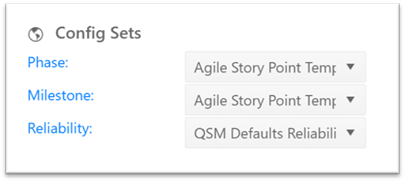
The reliability settings are used to calibrate the SLIM-Collaborate reliability estimate (defects from System Integration Test through delivery and MTTD, or Mean Time to Defect) to your past projects or to relevant industry data:

•Defect Tuning %. The Defect Tuning Factor (DTF) is a scaling parameter that tunes QSM’s reliability model up or down to match your historical defect discovery data. This field is used differently, depending on the stage of your project:
o Estimation stage: You can calculate and use the average DTF from one or more relevant completed projects to tune estimates to your environment, testing practices, and defect definitions. If you have no historical defect data, the default QSM Defect Tuning Factor of 100% will produce an average defect estimate for a project of similar size and staffing.
o Closeout stage: For each Closeout project record in your portfolio, a defect tuning factor will be calculated from the total defects provided on the Closeout Assumptions page. Since the Defect Tuning Factor is calculated for Closeout projects, this field will be disabled for editing. A defect tuning factor of 100% indicates a defect total consistent with the QSM industry average for a system of similar size and staffing. A tuning factor of 50% indicates half as many defects as the industry average and 200% indicates twice the industry average.
•Hours per Day/Days per Week. These fields describe the conditions in which your software must operate. The values you enter here are used to calculate the MTTD (mean time to defect) for the project. A flight management system may be operational 24 hours per day, 7 days a week. A billing application for a doctor’s office, on the other hand, may only be required to operate 8 hours a day, 5 days a week. Because the flight system must operate continuously for a longer period of time, it must have a higher reliability (or MTTD), all other factors being equal.